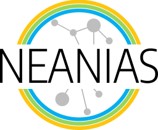When designing an online event, an organization should consider the following steps to create a successful event.
- Design the event specifically to take place in a virtual environment.
- Know the characteristics of the public and their mastery of new technologies. You have to make sure that the content is easily accessible to the audience to which the event is directed.
- Create a website for the event. With attractive content and adapted for different media, especially for smartphones.
- Create a specific app for the event.
- Guarantee the usability of the platform, that it is accessible and intuitive.
- Upload content before the start of the event.
- Create an invitation and registration system that makes it easy for users to follow up on the event.
- Create spaces for the interaction of participants, especially the ability to network.
- Design an attractive graphical environment that invites navigation and “hooks” the user.
- Introduce elements of virtual reality or augmented reality, which allows users to immerse themselves in the contents of the event.
- Incorporate avatars for users. This increases their immersion in the event and facilitates networking.
- Create a storytelling of the event, which gives the event a common thread that will facilitate the engagement of the attendees.
- Encourage the participation of attendees. For example, with gamification, surveys, contests, etc.
- Dissemination of the sale through social networks.
- Keep content accessible before, during and after the event. Although the event is live, you can reach a larger audience with the recordings of the event.
Online events have come to stay, because they are not only a product of the pandemic, but also provide important advantages, such as:
- They are profitable.
- They allow you to reach a global audience.
- Allow networking.
- They offer experiences similar to physical events.
- They have facilities to measure the success of the event and the exhibitors.
- Promote inclusivity.
- They are ecological.
The NEANIAS project team promotes the events online. Next blog we will present some of them and our conclussions.
